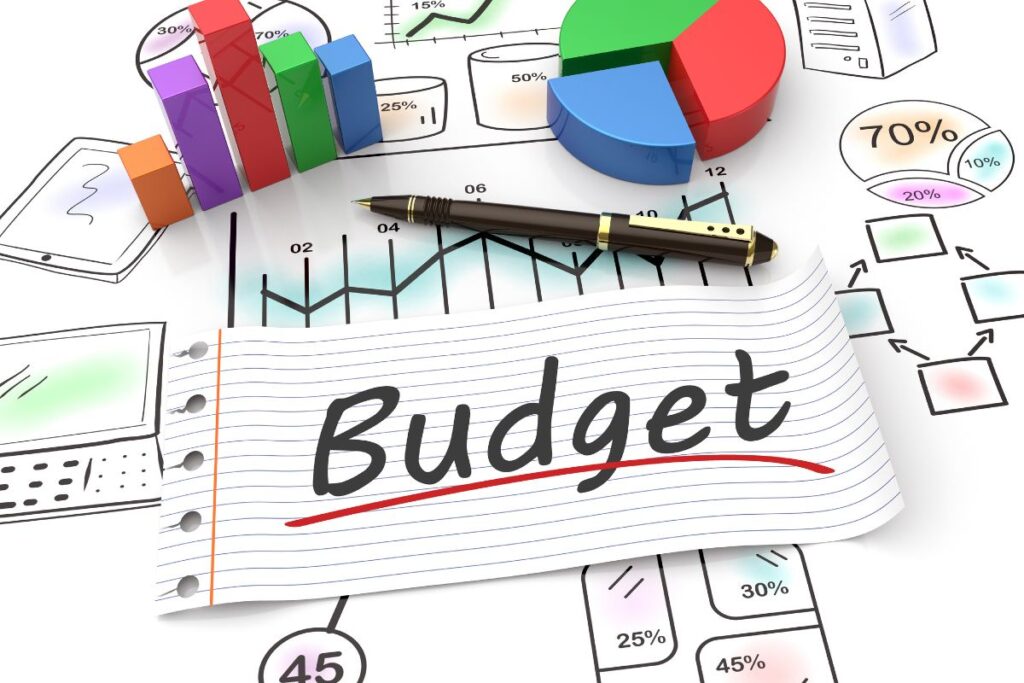Budgeting categories are essential for organizing your finances, tracking spending, and ensuring you’re allocating money towards the right priorities. Without well-defined categories, it’s easy to overspend, miss savings goals, or struggle with financial planning. Whether you’re managing household expenses, saving for future goals, or working towards debt freedom, categorizing your budget helps you stay in control of your money.
What Are Budgeting Categories?
Budgeting categories are specific groups that classify income and expenses to help individuals manage their finances efficiently. They provide structure, making it easier to see where money is going and identify areas for improvement. These categories cover essential needs, discretionary spending, savings, and debt repayment.
By properly categorizing your expenses, you can:
✅ Track spending patterns more effectively.
✅ Identify areas where you can save money.
✅ Ensure you are setting aside enough for financial goals.
✅ Reduce stress and increase financial security.
Main Budgeting Categories You Should Include
Creating a budget that works requires breaking down your expenses into different categories. Here are the main budgeting categories you should consider:
1. Housing
Housing is typically the largest expense in a budget. It includes:
🏡 Rent or mortgage payments
🔌 Utility bills (electricity, water, gas)
📶 Internet and cable services
🏠 Home maintenance and repairs
🛡️ Homeowners or renters insurance
📜 Property taxes
A general rule is that housing costs should not exceed 30% of your income, but this can vary depending on location and personal financial circumstances.
2. Transportation
Whether you own a car or use public transportation, transportation costs are a necessary expense. These include:
🚗 Car payments
⛽ Fuel costs
🛠️ Vehicle maintenance and repairs
🛂 Auto insurance
🚊 Public transportation (bus, train, metro)
✈️ Travel expenses (airfare, rental cars)
Managing transportation costs effectively can free up more money for savings and investments.
3. Food
Food expenses are a significant part of any budget. The goal is to balance healthy eating with affordability. Food-related categories include:
🛒 Groceries
🍽️ Dining out and takeout
☕ Coffee and snacks
🚚 Food delivery services
Cutting back on dining out and focusing on home-cooked meals can significantly reduce expenses in this category.
4. Debt Repayment
If you have outstanding debts, budgeting for repayment should be a priority. This includes:
💳 Credit card payments
🎓 Student loan payments
🚗 Car loan payments
🏡 Mortgage principal and interest
📈 Personal or business loans
A smart strategy is to use either the debt snowball method (paying off the smallest debts first) or the debt avalanche method (paying off high-interest debts first).
5. Savings & Investments
Building financial security starts with consistent savings and smart investments. This category includes:
💰 Emergency fund contributions
🏦 Retirement savings (401(k), IRA, or other pension plans)
📈 Investment accounts (stocks, mutual funds, ETFs)
🎯 Short-term savings (vacation, down payment, major purchases)
Experts recommend saving at least 20% of your income, following the 50/30/20 rule.
6. Insurance
Insurance protects against financial risks. While premiums can seem expensive, they provide essential coverage in emergencies. Categories include:
🏥 Health insurance
🚗 Auto insurance
🏡 Homeowners or renters insurance
📜 Life insurance
💼 Disability insurance
7. Health & Wellness
Prioritizing health is crucial for long-term well-being. Expenses in this category may include:
🏥 Medical bills and co-pays
💊 Prescription medications
🦷 Dental and vision care
🏋️♂️ Gym memberships and fitness classes
🥦 Vitamins and supplements
Having a dedicated category for health-related expenses ensures you are financially prepared for medical needs.
8. Personal & Household Expenses
This category includes everything necessary for daily life:
🧻 Household supplies (cleaning products, toiletries)
🛏️ Furniture and home decor
👕 Clothing and shoes
📦 Subscriptions (Netflix, Amazon Prime, Spotify)
🎁 Gifts and charitable donations
Reviewing this category can help cut unnecessary spending, such as unused subscriptions.
9. Entertainment & Recreation
While budgeting is about financial discipline, it’s also important to enjoy life. Entertainment expenses include:
🎬 Movie theaters and streaming services
🎡 Amusement parks and events
🎶 Concerts and shows
📚 Books and hobbies
✈️ Travel and vacations
Allocating a reasonable amount to entertainment ensures balance without overspending.
10. Childcare & Education
If you have children, budgeting for their needs is essential. Key expenses include:
🏫 Tuition and school fees
📚 Books and school supplies
👶 Daycare and babysitting
🏕️ Extracurricular activities (sports, music lessons)
🎓 College savings funds
Setting aside funds for education helps reduce future financial stress.
11. Miscellaneous & Unexpected Expenses
There will always be unplanned expenses. Having a miscellaneous category helps handle:
🚨 Emergency repairs (car, home)
🐶 Pet care (food, vet visits)
⚠️ Unexpected fees (bank fees, late payments)
Keeping an emergency fund prevents these costs from disrupting your budget.
How to Allocate Budgeting Categories Efficiently
Once you have categorized your expenses, the next step is allocating your income. Here are some budgeting methods to consider:
📌 Zero-Based Budgeting – Every dollar is assigned a purpose (expenses, savings, debt).
📌 50/30/20 Rule – 50% needs, 30% wants, 20% savings.
📌 Envelope System – Using cash envelopes for different categories to control spending.
Choosing the right method depends on your financial situation and spending habits.
Tips for Managing Budgeting Categories Successfully
✔️ Track Your Spending – Use budgeting apps like Mint, YNAB, or EveryDollar to monitor expenses.
✔️ Adjust as Needed – Your budget should be flexible and adaptable to life changes.
✔️ Review Monthly – Regularly check if you’re overspending in any category.
✔️ Prioritize Essentials – Always cover necessities before discretionary spending.
Final Thoughts: Budgeting Categories for Financial Success
Understanding budgeting categories is crucial for maintaining financial stability and reaching financial goals. By allocating funds to the right categories, you can gain control over your money, reduce financial stress, and build a secure future.
For additional budgeting tips, check out this comprehensive budgeting guide from NerdWallet.

